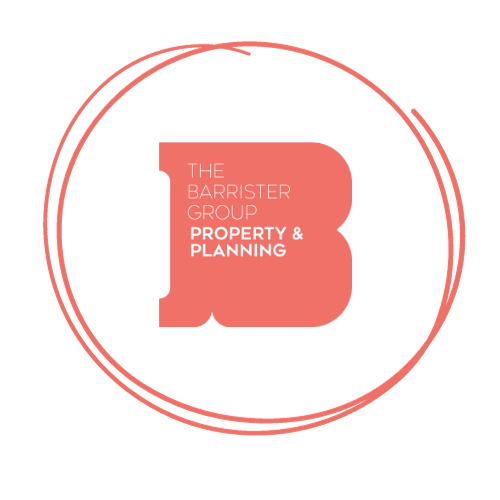Christopher has over forty years’ experience in general chancery and commercial practice in Lincoln’s Inn following his graduation from Cambridge with a starred first. Throughout his years in practice, there has been an emphasis on drafting and tackling complex issues with an eye for the commercial objective.


Christopher enjoys the research and analysis required for such matters but endeavours to provide his work speedily within the time limits imposed by the commercial needs of his professional and lay clients.
Meeting clients’ deadlines is uppermost for Christopher, whilst still ensuring all-important attention to detail. He seeks to do so in a manner which engages constructively with the client in a friendly and approachable manner. Litigation is undertaken but always takes account of the commercial consequences.
Christopher is qualified to accept instructions through the Public Access Scheme but not to conduct litigation.
Barristers in England and Wales are regulated by the Bar Standards Board

A significant portion of Christopher's practice has always been focused on property in which subject he is a specialist. He advises on difficult points, the structuring of transactions and preparing drafts. The spectrum of transactions Christopher is instructed on runs from large scale residential and shopping developments to single dwellings or offices. Clients vary from large scale developers, niche builders and local authorities to individual householders. He has a particular expertise in overage and planning promotion agreements. In addition, Christopher acts in contentious property matters including disputes over easements, restrictive covenants, enforcement of charges and guarantees, leases and sales of land.
Community Infrastructure Levy is a particular area in which Christopher has a pre-eminent specialism, fitting in well with his general advisory work on behalf of developers and authorities. He enjoys the application of the legislative regime; planning to tackle CIL issues; and the consideration of general planning policy including section 106 planning obligations. This has led to his undertaking work concerning planning permissions and their enforcement.
As well as advisory work, Christopher appeared in the Planning Court for the successful authority in the first judicial review case on the operation of the CIL regime and has acted on a number of statutory CIL appeals. He is now being asked to consider professional negligence issues arising from CIL.
Assets of Community Value is a second area in which Christopher has a pre-eminent specialism acting for local authorities, owners and community groups. He has appeared in a number of ACV appeals.
Christopher is a passionate contributor to the understanding of the areas in which he practices. His comprehensive guides to CIL and ACV are available free for all on the web. He writes regularly on these topics.
The nature of the transactions dealt with in his practice is not limited exclusively to property matters but ranges much wider in the commercial field. It includes both drafting and contentious matters. On the contentious side, Christopher's work encompasses matters such as disputes over the sale of companies, bringing in issues such as the enforcement of guarantees.
1. This is a privacy notice that describes how, why and for how long I will process or keep your personal data in accordance with the General Data Protection Regulation (‘GDPR’).
2. The GDPR governs how an individual’s personal data is used, and your rights in relation to that data.
3. I, Christopher Cant, have been instructed by you or your litigation friend (usually a parent), through your solicitor or agent, or via the Bar Pro Bono Unit.
4. It is necessary for me to process your personal data in order for me to provide you with legal services, for example:
5. Processing means anything done to data such as: recording, organising, adapting, altering, copying, consulting, transmitting, combining, erasing or storing it.
6.The processing for the purposes listed above will take place in accordance with either Article 6(1)(a) GDPR or Article 6(1)(b) GDPR, depending on how you instructed me.
7. If you have instructed me on a direct access basis, or engaged a solicitor (or legal agent), to assist you in bringing or defending a claim then the processing is necessary to perform a contract to which you are a party (Article 6(1)(b) GDPR). To give effect to that contract (i.e. to bring a claim) it is necessary for me to process your personal data for litigation purposes.
8. If I am assisting you on a pro bono basis, it will be necessary for me to seek your consent to be able to represent you (Article 6(1)(a) GDPR). In this scenario, you will be sent a consent form.
Recipients of your data
9. I may also be required to share your data with others, depending on the nature of your case. This may include:
(i) Courts and other tribunals to whom documents are presented;
(ii) Your solicitors, or agent representing you, through whom I have been instructed;
(iii) Potential witnesses, experts and other persons involved in the case;
(iv) Solicitors, barristers, or other legal representatives;
(v) Ombudsman and regulatory authorities;
(vi) Education and examining bodies; and
(vii) Current, past or prospective employers.
Special Categories of Data
10. In some cases I will have been given your personal data that is within the ‘special categories’ of data described in GDPR Article 9(1). For example, personal data that reveals your race, ethnicity, sexual preferences, political or religious beliefs, trade union membership or health. There are also restrictions for processing information regarding criminal convictions.
11. This type of personal data will only be processed where it is necessary in order to represent you in your legal claim, or advise on the prospects of a legal claim.
Retention
12. I will retain your personal data for no longer than is necessary, and where it is possible, I will anonymise your data.
13. How long your personal data is kept will depend on a number of factors. The retention period will be reviewed when the service I am providing you with is complete. However in general, I am obliged by the Bar Code of Conduct to retain records of my cases, and by HM Revenue and Customs to retain records for 6 years.
14. Once your case has concluded and fees have been paid, I shall retain only the personal data necessary for the following purposes:
(i) The legal and professional obligation to retain information relating to my cases;
(ii) To check for any potential conflict of interests that may arise in the future when I am instructed on other cases;
(iii) For use in the defence of potential complaints, legal proceedings or fee disputes;
(iv) To refer back to in future cases which raise similar legal, factual, or procedural issues.
15. The processing for the purposes listed in paragraph 14 (ii), (iii), and (iv) above, will take place in accordance with Article 6(1)(f) GDPR. That is, for the purposes of legitimate interests that are not outweighed by your interests or fundamental rights and freedoms.
16. The processing for the purposes listed in paragraph 14(i) above, will take place in accordance with Article 6(1)(c) GDPR. That is, the processing is necessary for me to comply with a legal obligation.
Your Rights
17. Where processing of your personal data was based on your consent (see paragraphs 6 and 8) you have the right to withdraw that consent at any time. This does not affect the lawfulness of the processing based on consent before its withdrawal.
18. Withdrawal of your consent to process such data will most likely mean that I am no longer able to provide you with the legal services you seek.
19. You may request confirmation that your personal data is being processed by me and details about the personal data, the source, the processing, the purposes of the processing, the recipients and the retention period.
20. You may request a copy of your personal data that is being processed by me. You may also request rectification (i.e. correction) where there are inaccuracies in the personal data.
21. You have the right to object, on grounds relating to your particular situation, at any time, to processing of your personal data in paragraph 14 of this privacy notice. Should you object, the processing will only continue where there are compelling legitimate grounds for the processing which override your fundamental rights, freedoms and interests.
22. Where the processing or retention of your data is necessary for the establishment, exercise or defence of legal claims, it will not be possible to object.
23. You have the right to request that your personal data is erased where any of the following apply:
(i) The personal data are no longer necessary in relation to the purposes for which they were collected or otherwise processed;
(ii) You withdraw your consent where the basis of processing was based on consent and where there is no other ground for the processing;
(iii) Where your fundamental rights, freedoms and interests override the legitimate interests of processing in paragraph 14;
(iv) The personal data has been unlawfully processed; or
(v) The personal data have to be erased to comply with a legal obligation.
24. You have the right to request that your personal data is restricted from processing, so that it is simply stored, for the following reasons: as an alternative to deletion; so that it can be corrected; for the establishment, exercise or defence of legal claims; to verify if a legitimate ground exists (paragraph 14).
25. Where it is necessary to correct your personal data, or you have requested the restriction or erasure of your personal data, I shall endeavour to contact the recipients of the personal data, unless this involves disproportionate effort.
Security
26. I take appropriate physical and technical procedures to safeguard your personal data to prevent it from being accidentally lost, used or accessed in an unauthorised way.
Complaints or Queries
27. If you have any questions regarding this privacy notice, or how I use your personal data please email me: mailto: christopher.cant@tbgbarrister.co.uk, or my clerks: clerking@thebarristergroup.co.uk telephone 01823 247 247.
28. I shall aim to respond as soon as possible, and within 30 days.
29. You have the right to complain to the Information Commissioner's Office (ICO) if you believe I have not handled your request in an appropriate manner. For information on contacting the ICO please go to: https://ico.org.uk/global/contact-us/











If you’d like to work with Christopher Cant or any of our other specialist property barristers, send us your details and we’ll get back to you.